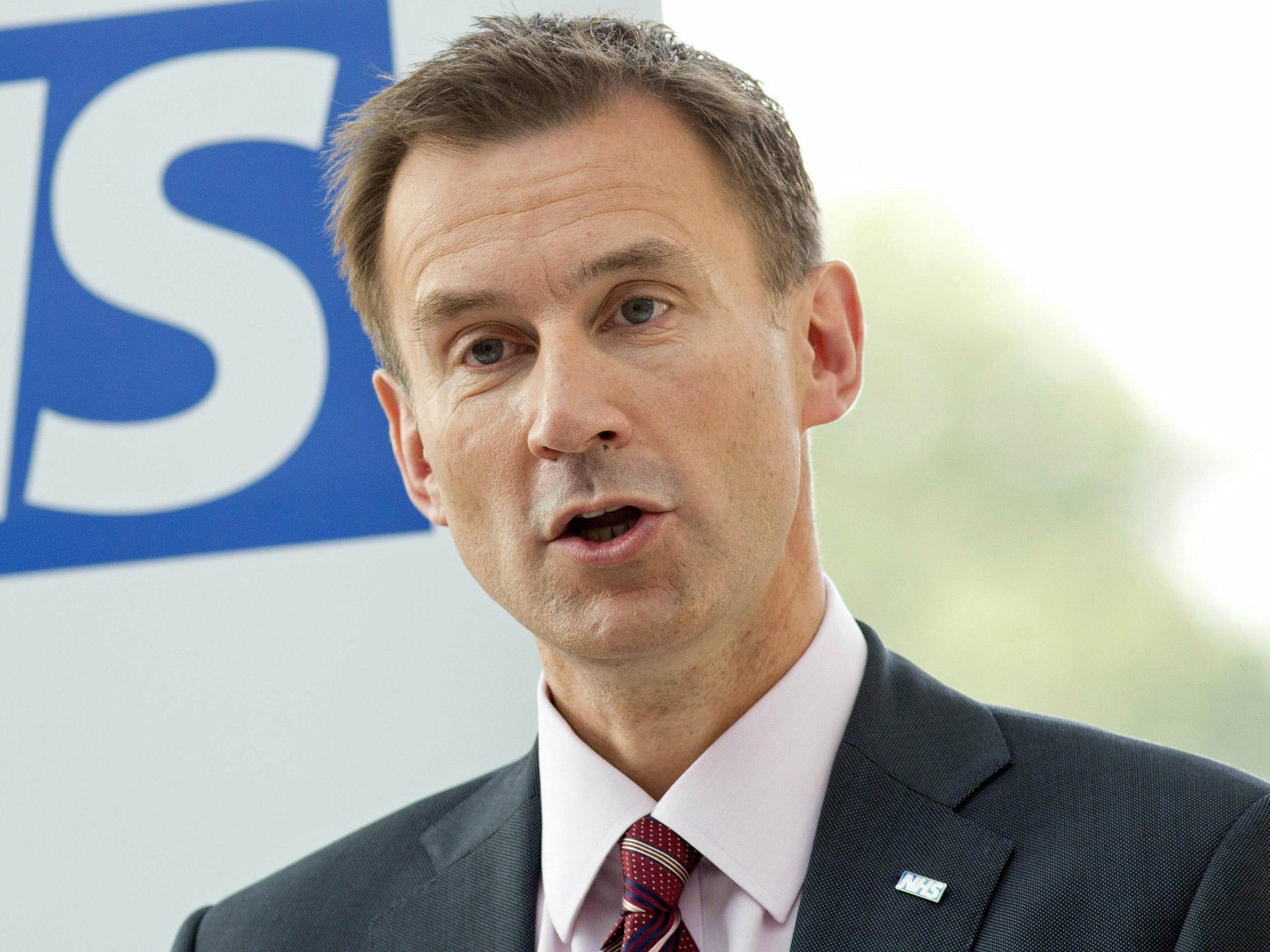Jeremy Hunt promises £160m boost to Cancer Drugs Fund

Your support helps us to tell the story
From reproductive rights to climate change to Big Tech, The Independent is on the ground when the story is developing. Whether it's investigating the financials of Elon Musk's pro-Trump PAC or producing our latest documentary, 'The A Word', which shines a light on the American women fighting for reproductive rights, we know how important it is to parse out the facts from the messaging.
At such a critical moment in US history, we need reporters on the ground. Your donation allows us to keep sending journalists to speak to both sides of the story.
The Independent is trusted by Americans across the entire political spectrum. And unlike many other quality news outlets, we choose not to lock Americans out of our reporting and analysis with paywalls. We believe quality journalism should be available to everyone, paid for by those who can afford it.
Your support makes all the difference.Thousands more cancer patients in England will get access to life-extending drugs after the Government set aside extra cash to pay for treatments.
Jeremy Hunt, the Health Secretary, said that the Cancer Drugs Fund, which pays for pioneering treatments not routinely available on the NHS, would be given a £160m boost.
The money will take the value of the fund to £280m per year for the next two years.
However, cancer charities expressed disappointment that Mr Hunt made no guarantees that the fund, which is set to expire in March 2016, would continue into the future.
The Cancer Drugs Fund has helped more than 55,000 cancer patients since it was set up four years ago. Doctors can apply for money from the fund, on a case-by-case basis, to pay for drugs not available on the NHS – usually because they are restrictively expensive. The fund is only available in England.
Mr Hunt said that the Government needs to “focus our efforts on increasing access to these innovative treatments”.
The announcement follows controversy over decisions by the drugs watchdog Nice not to recommend two cancer drugs which have been shown to extend the life of terminally ill patients for routine use on the NHS, citing restrictively high costs placed on them by their manufacturers.
Chris Askew, chief executive of Breakthrough Breast Cancer, said that the charity was “concerned that [the cash injection] is not a long-term solution to the problem of access to drugs that currently exists in the UK”.
Join our commenting forum
Join thought-provoking conversations, follow other Independent readers and see their replies
Comments